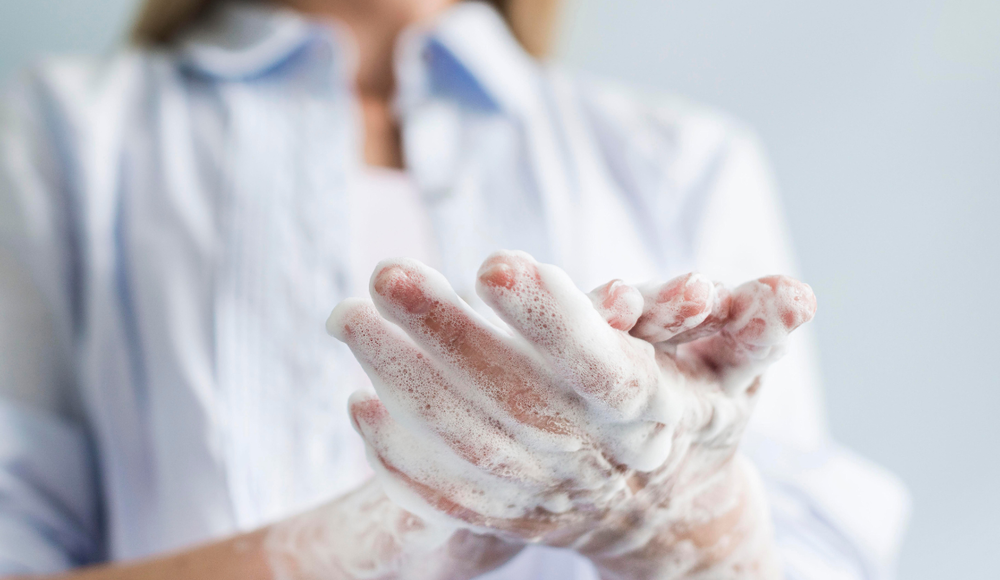
The Importance of Personal Hygiene During Menstruation
27/07/2025
Understanding Menstruation and Personal Hygiene
Menstruation is a natural process that every woman experiences, usually starting between ages 10 and 15 and continuing until menopause. It involves a monthly cycle where the uterine lining sheds if pregnancy does not occur. Along with this physiological change, personal hygiene becomes critically important.
Personal hygiene during this time not only enhances comfort but is vital in preventing infections. Here are some essential practices:
- Daily bathing: Helps remove menstrual blood and reduces odor.
- Choosing the right products: Tampons, pads, or menstrual cups should be selected based on personal comfort and flow.
- Handwashing: Always wash your hands before and after changing products to maintain cleanliness.
Impact of Poor Personal Hygiene During Menstruation
Neglecting hygiene during menstruation can lead to various issues. For instance, you might find yourself dealing with discomfort or embarrassment from odor. More seriously, poor hygiene can lead to infections, such as:
- Bacterial vaginosis
- Yeast infections
- Urinary tract infections (UTIs)
Imagine going through your day feeling uncomfortable or dealing with potential infections. Prioritizing personal hygiene can improve not only your physical health but also your mental well-being. A committed approach to maintaining hygiene during your menstrual cycle will empower you to feel confident and self-assured each month.
Menstrual Hygiene Practices
Proper Menstrual Product Usage
Now that you understand the importance of personal hygiene during menstruation, let’s dive into best practices for using menstrual products effectively. Whether you prefer pads, tampons, or menstrual cups, knowing how to use them properly makes all the difference.
Here are some quick tips:
- Pads: Ensure the adhesive side sticks well to your underwear. Change them every 4-6 hours to prevent leaks and maintain hygiene.
- Tampons: Always wash your hands before and after insertion. Choose the absorbency level that suits your flow; using a higher absorbency than necessary can increase the risk of Toxic Shock Syndrome (TSS).
- Menstrual Cups: They can be a game-changer! Make sure to boil them for sanitation before your cycle and empty them every 8-12 hours.
Importance of Changing Menstrual Products Regularly
Changing your menstrual products regularly is crucial for maintaining good hygiene. Ideally, replace pads and tampons every 4-6 hours, while menstrual cups should be emptied every 8-12 hours.
Consider this: When you leave a product in too long, bacteria can grow, leading to unpleasant odors or infections.
Importance of Educating Others About Menstrual Hygiene
Educating others about menstrual hygiene is more vital than it may seem. When women and girls are informed, they can take charge of their health during their menstrual cycle.
Consider discussing these topics:
- Sharing information: Engage in conversations about menstrual health with your peers or younger individuals.
- Breaking the silence: Open dialogues lessen stigma and promote understanding.
By spreading knowledge, you empower others to prioritize their hygiene, leading to better outcomes for women’s health overall. Remember, the more we talk about menstruation, the less taboo it becomes, and that’s a step toward healthier habits for all!
Read More: Simple movements to relieve menstrual pain
Promoting Proper Menstrual Hygiene
The Role of Education in Menstrual Hygiene Promotion
With a solid foundation on debunking myths, it’s essential to transition into how we can actively promote proper menstrual hygiene. Education plays a pivotal role in this endeavor. Understanding the facts around menstruation can empower individuals to manage their hygiene effectively.
- In schools: Incorporating menstrual health education into the curriculum can create a supportive environment for young girls.
- Workshops: Hosting community workshops can help demystify menstruation for all genders, fostering respect and understanding.
The Impact of Personal Hygiene During Menstruation on Health
Risks Associated with Poor Menstrual Hygiene
As we explore the impact of menstrual hygiene on health, it’s crucial to recognize the risks that come with poor hygiene practices. Ignoring proper hygiene during your period can lead to concerning health issues.
Some common risks include:
- Infections: Unchanged pads or tampons can breed bacteria, increasing the likelihood of bacterial infections, yeast infections, or urinary tract infections (UTIs).
- Odor: Poor hygiene practices may result in unpleasant odors, leading to embarrassment and discomfort.
- Pelvic Inflammatory Disease (PID): This serious infection can arise from untreated STIs or poor menstrual hygiene, potentially leading to complications like infertility.
Benefits of Maintaining Good Personal Hygiene During Menstruation
Conversely, maintaining good personal hygiene can have numerous benefits for your health and well-being. Here’s what you can look forward to:
- Reduced Risk of Infections: Regularly changing menstrual products and using clean methods decreases the chance of infections.
- Comfort: A clean routine can significantly enhance your comfort levels while on your period, letting you focus on daily activities without worry.
- Boosted Confidence: When you feel clean and fresh, you naturally exude confidence, allowing you to engage fully in social, academic, or work settings.
Adopting good hygiene practices during menstruation is an investment in your health. You deserve to feel confident and comfortable throughout your cycle—so embrace these practices for a healthier, happier experience!